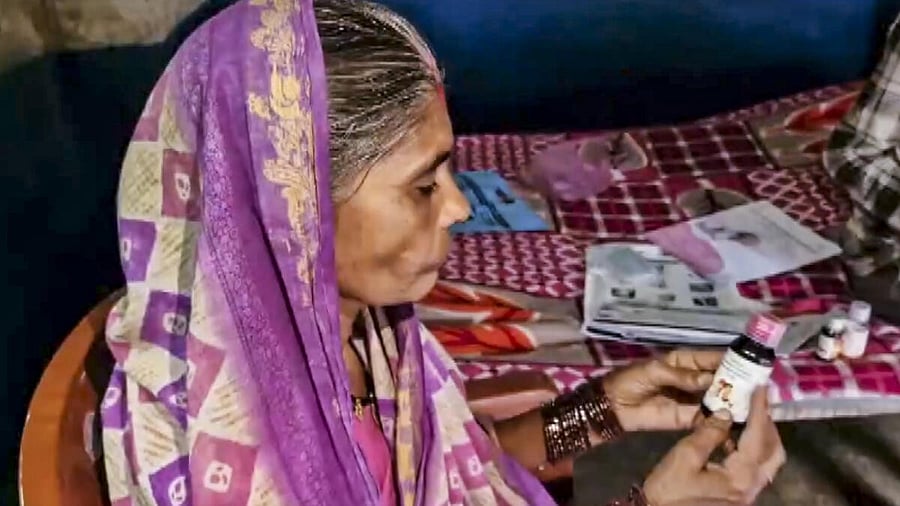
MP bans Coldrif cough syrup sale
Credit: PTI photo
In a tragedy that has shaken India’s public health system, at least 20 children in Madhya Pradesh have died after consuming a contaminated cough syrup, Coldrif, manufactured by Tamil Nadu-based Sresan Pharmaceuticals.
The syrup was found to contain diethylene glycol (DEG), a toxic industrial chemical that has been linked to acute kidney failure and death. The deaths have prompted a nationwide investigation into pharmaceutical safety and regulatory failures.
What Is Diethylene Glycol (DEG)?
Diethylene glycol is a colorless, odorless liquid primarily used in industrial applications such as antifreeze, brake fluids, and solvents. It is not intended for human consumption. When ingested, DEG is metabolised in the body into toxic compounds that can cause severe kidney damage, leading to acute kidney injury, anuria (inability to urinate), and death. Symptoms of poisoning can include nausea, vomiting, abdominal pain, and lethargy, often progressing rapidly to renal failure.
DEG is never intended for human consumption. Yet, it has repeatedly appeared in medicines around the world due to cost-cutting or poor quality control.
Pharmaceutical syrups usually rely on glycerin or propylene glycol to dissolve active ingredients. These solvents are safe for consumption. However, DEG is chemically similar but far cheaper, and some unscrupulous manufacturers have substituted it to save money. In other cases, contamination occurs when industrial-grade glycerin or propylene glycol, tainted with DEG, is used instead of pharmaceutical-grade ingredients.
A History of Tragedy
The current crisis in India is not an isolated incident. In 1937, 105 Americans died after ingesting a DEG-tainted sulfanilamide solution.
In 2008–2009, Nigeria experienced a similar tragedy when 57 children died after consuming a teething syrup contaminated with DEG. An investigation revealed that the contamination resulted from the use of substandard raw materials and inadequate quality control measures.
In 1995–1996, Haiti also reported fatalities due to DEG-contaminated acetaminophen syrup.
More recently, in 2022, 70 children in The Gambia died after consuming cough syrups containing DEG.
Regulatory Failures and Accountability
In response to the Madhya Pradesh deaths, Indian authorities have initiated a criminal investigation into Sresan Pharmaceuticals. The company’s manufacturing license has been suspended, and police are considering charges of manslaughter. The Drugs Controller General of India (DCGI) has issued an advisory highlighting lapses in pharmaceutical quality testing, particularly among firms with a history of non-compliance. The Central Drugs Standard Control Organisation (CDSCO) is conducting inspections across six states, focusing on companies producing cough syrups, antipyretics, and antibiotics.
The Madhya Pradesh incident adds to a troubling pattern of deaths linked to contaminated cough syrups. Since 2022, the World Health Organization (WHO) has issued multiple alerts regarding substandard pediatric medicines containing DEG and ethylene glycol. These alerts have been triggered by reports from countries including Gambia, Iraq, and Uzbekistan, where over 300 child fatalities have been attributed to such products.
